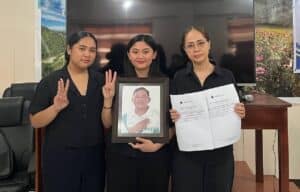We wish to reply to the Nov. 7 columns of Neal Cruz and Conrado Banal III, both of which refer to the same subject, regarding certain loans that were written off by the Development Bank of the Philippines (DBP) from 2004 to 2009. Curiously, the two columnists wrote on the same topic, on the same day, using the same words. They were obviously victimized by some PR operatives who desperately want to muddle the current Senate investigation on the DBP scandal by diverting its focus. While Cruz may not have fully understood the intricacies of complex financial transactions, we were surprised that Banal, who should know better as a business columnist, bought the pitch of these PR operatives hook, line and sinker, thus misleading Inquirer readers.
The headline of Cruz’s column, “DBP wrote off P1.6B in loans to Lopez group,” seems to give the impression that we were recipients of special favors from the DBP. The fact DBP provided loans to Lopez Group companies only as part of consortia that included many other banks. A Special Purpose Vehicle law was enacted in 2002 to help all banks clean up their books as a result of the Asian financial crisis of 1997, which affected other companies as well.
Some of the write-offs referred to in the two columns were results of court action where all lenders, not just DBP, booked losses. The biggest loss was taken by Lopez Holdings Corporation, which had to write off a total of P20.7 billion in equity and advances to Maynilad Water Services Inc. and Bayan Telecommunications Inc.
Lopez Holdings and its operating units were never recipients of behest loans from any government financial institution. All debts incurred were provided by institutions that had all the time and the opportunity to review our investment portfolio, and had the same opportunity to refuse us credit.
Isn’t it curious that these regular loans are being surfaced now just when the Senate is investigating DBP for some questionable lending activities? Note that it is well within DBP’s mandate to lend to our group of companies since telecommunications, cable and water distribution are vital public necessities if we are to develop sustainable urban communities.
It is not as if our companies borrowed to speculate in the stock market. We invested in real infrastructure and real businesses that suffered economic losses, partly due to the crisis but mainly due to the hostile regulatory regime prevailing at that time.
—(SGD.) Salvador G. Tirona, president, Lopez Holdings Corporation



